Mangaluru, Nov 19: Congress leaders including Chief Minister Siddramaiah, KPCC president G Parameshwara on Saturday used the birth centenary celebration of Indira Gandhi to virtually launch a campaign for the 2018 assembly poll.
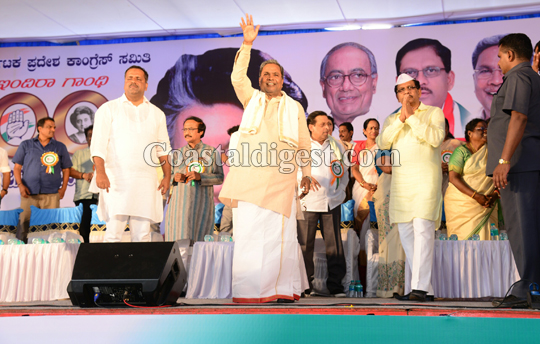
Addressing party workers at the Nehru Maidan in Mangaluru, Mr Siddaramaiah cautioned youth in the coastal belt “to not fall prey to Hindutva and divisive agenda of the BJP.” He said the BJP has been trying to divide the society by projecting “Hindutva” in the forefront, particularly in Dakshina Kannada and Udupi districts.
The Chief Minister said the Congress was observing the “Indira 100” programme to unite people as Integration Day.
Mr Parameshwara, said Saturday's programme was “intentionally organised in Mangaluru” to hit out at the brand of “communal politics” of the BJP. He said it was aimed at “reinstilling confidence among the party cadre ahead of the Assembly polls scheduled for April 2018.”
He said Mr. Siddaramaiah and the Congress had received an “overwhelming response” to its padayatra titledCongress nadige samarasyada kadege' from Ullal to Udupi ahead of the previous Assembly elections. “It paid rich dividends to the party to win over the BJP in the 2013 Assembly elections in the two districts,” he claimed.
Of the eight Assembly segments in Dakshina Kannada district, the Congress increased its tally to seven seats in the 2013 elections from four in 2008. In Udupi, the Congress was able to win three of five Assembly seats. It bagged only one seat in Udupi district in 2008.
However, interestingly, the recent zilla panchayat elections in both Dakshina Kannada and Udupi were bagged by the BJP.
Also Read: Siddaramiah announces Interest-free loans for women SHGs
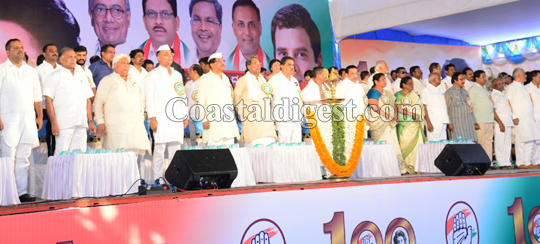
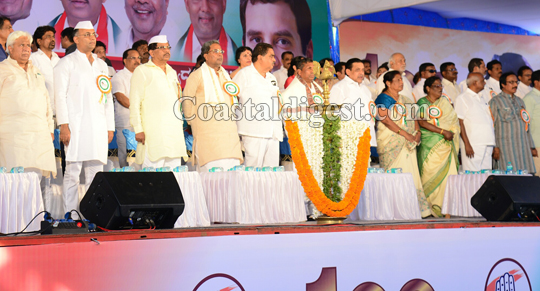
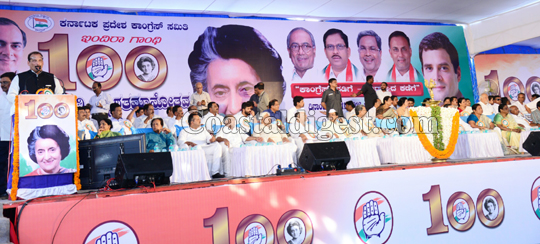
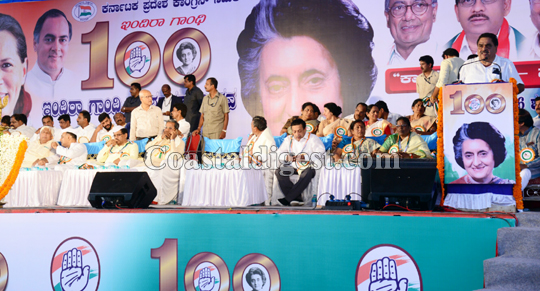
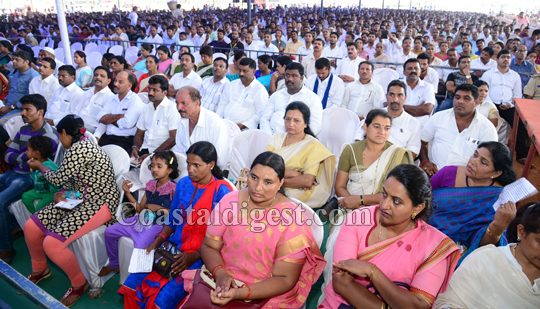
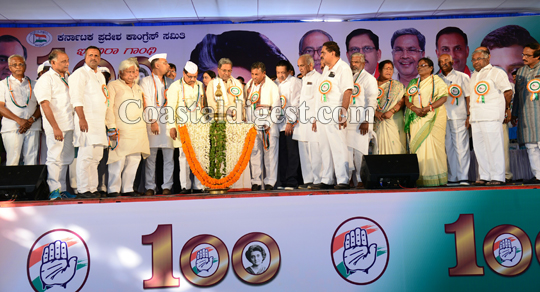
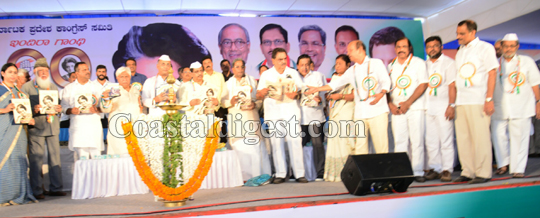
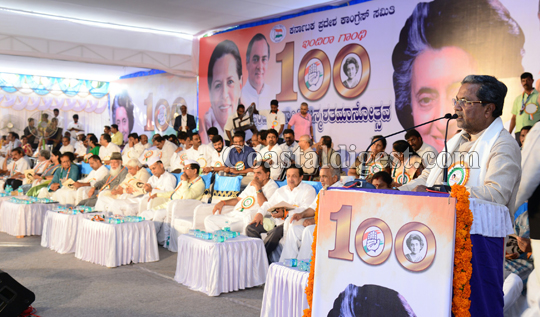
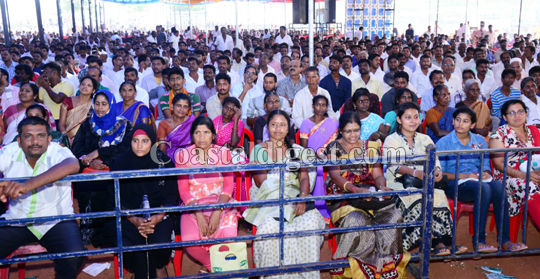
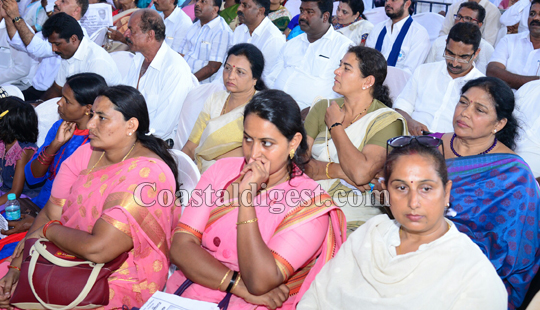
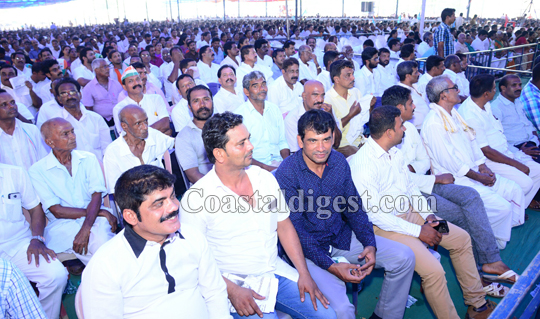
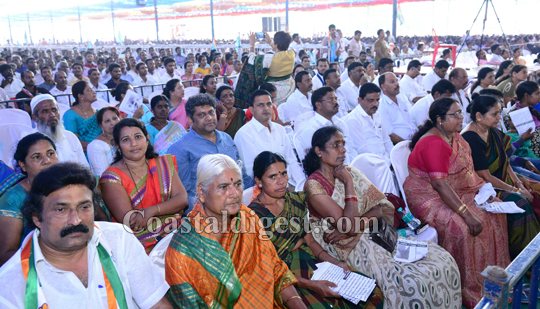
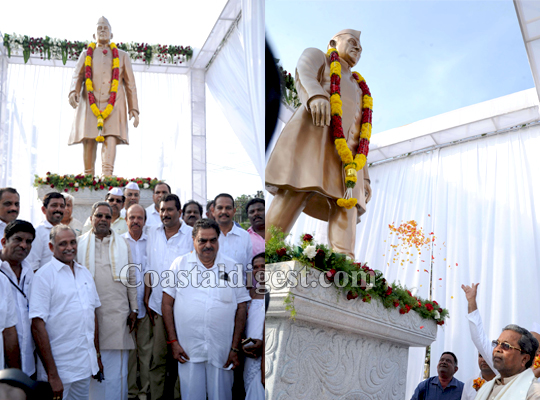
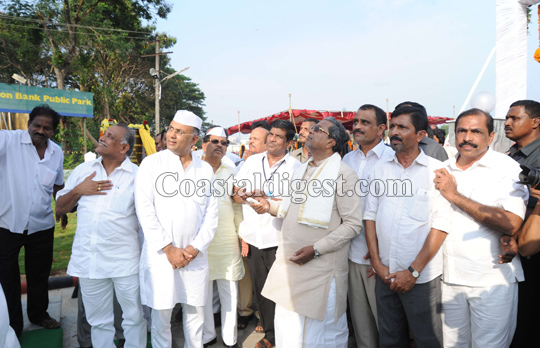








Comments
Decent crowd of Mangaloreans. Then why it looks like rowdies are gathered when there is a BJP rally???
Add new comment